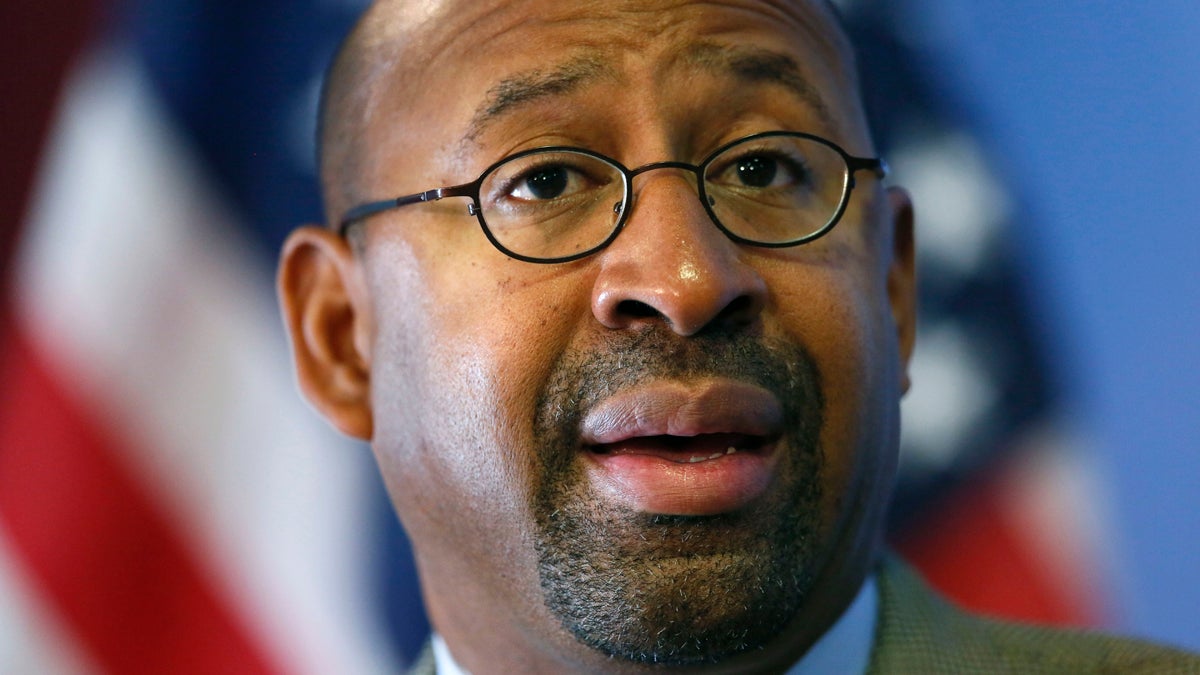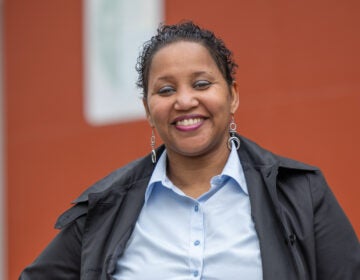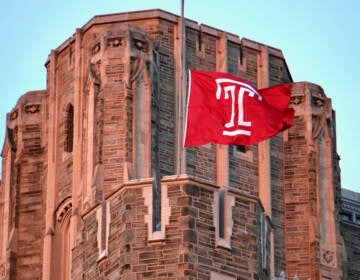At sunset of term, Mayor Nutter reflects on his ambitious education agenda
Philadelphia Mayor Michael Nutter set an ambitious agenda for schools in his 2008 inauguration speech
Listen 4:20
Outgoing Philadelphia Mayor Michael Nutter (AP file photo)
Philadelphia Mayor Michael Nutter set an ambitious agenda for schools in his 2008 inauguration speech: promising to cut in half the number of drop outs, while doubling the number of Philadelphians who hold college degrees — both by 2015.
“I’m asking you to join me in the greatest American city turnaround that anyone has seen in the last 50 years. Ladies and gentlemen, I’ve laid out for you: this is the new Philadelphia,” said Nutter during that speech.
Nutter will reflect on public education and how much progress his administration made toward those goals during a keynote speech Tuesday morning at 11 at WHYY.
To meet those goals, the city would have needed to cut the dropout rate from 29 percent to 14.5 percent, and raise the amount of Philadelphians holding college-degrees from 21 percent to 42 percent.
Soon after Nutter made these pledges, the worldwide financial crisis hit. The city budget was slashed, and before long, Tom Corbett was elected governor with a mandate for austerity.
Through Nutter’s years, the state’s share of Philly school funding has substantially dwindled while city taxpayers have been pushed to make up the difference.
Despite the sluggish economy, Nutter did not backtrack on his promise.
“The mayor is not in charge, directly in charge, of public schools, and certainly not in charge of higher education, but I thought that setting goals, giving people something to reach for that, in my view, was doable — and I thought could be accomplished — was important,” Nutter explained during a sit-down interview in his office last week.
So how did it turn out?
Progress was made across the board. The dropout rate fell, and the number of Philadelphians with four-year college degrees has risen, but nowhere near the levels that Nutter had hoped.
“I knew that based on past history it would be tough. I knew it would be bit of a stretch. I’m pretty sure I shocked the hell out of many of the folks that work in this government today because they had not seen that part of the speech. I wrote that myself, and they sat there and heard it,” said Nutter.
“I don’t believe you can ever be too ambitious, especially when it comes to educating children. I set a very high bar, we’ve made significant progress compared to what had been going on. I could have said, ‘I think that if we can get to 60 percent high school graduation rate that would be a great achievement.’ We’re at 65 percent. Fantastic. Declare victory. That’s bull—-.”
2008
- Dropout rate: 29 percent (cohort that started ’03-’04)*
- Four-year grad rate: 53 percent (cohort that started ’03-’04)
- Six year grad rate: 60 percent
- Philadelphians with college degrees: 21 percent**
2015
- Dropout rate: 26 percent***
- Four-year grad rate: 65 percent (class that started 10-11)
- Six-year grad rate: 70 percent
- Philadelphians with college degrees: 25.2 percent
*In 2008, Nutter referred to the dropout rate as 45 percent, which school district officials say was not accurate.
**In 2008, Nutter referred to the percentage of Philadelphians with college degrees as 18 percent, which literature from the mayor’s office of education, based on census data, disputes.
***As of the class of 2014. The classes of ’10, ’11, and ’12 had a dropout rate of 31 percent.
Since the initial pledge, the Nutter administration shifted its focus from the dropout rate to the high school graduation rate.
In 2008, 53 percent of Philadelphia students graduated high school in four years. Sixty percent did so within six years.
The latest numbers show a substantial boost. Sixty-five percent graduate in four years, and 70 percent do so within six.
Nutter said there are two key hurdles that make it difficult to further increase student achievement rates.
“It’s funding and accountability,” he said.
On funding, Nutter stressed the need for the state to up its investment in public education – while implementing a formula that systematically directs more funding to districts with the greatest needs.
On accountability, Nutter repeatedly alluded to the need for “adult conversations.” Specifically, he called for the district to reach consensus with the teachers union — which has been without a contract for more than two years.
“The district/teacher relationship really has to change. And as adults, we have to stay focused on: who’s the most important entity here? It’s kids,” said Nutter. “So some of the things that these fights back and forth between the district and the teachers, some of them have nothing to do with educating a child, have nothing to do with the quality of what happens in the classroom.”
Both sides contend they do make decisions with the children in mind.
“Yeah, I understand that, because that’s what adults fight about,” said Nutter. “But whether a teacher pays one percent or two percent or whatever for their healthcare has nothing to do with if Johnny or Sally knows how to add, subtract, multiply and divide. The two have nothing to do with each other.”
Nutter also alluded to the need for changes to the overarching school governance structure. Since 2011, city schools have been run by the School Reform Commission — a five member panel consisting of three state and two mayoral appointees.
“We’ve had almost fifteen years of this and we need to have a grownup conversation about the future of all that,” he said.
A video feed of Nutter’s speech Tuesday at 11 a.m. will be livestreamed at whyy.org.
WHYY is your source for fact-based, in-depth journalism and information. As a nonprofit organization, we rely on financial support from readers like you. Please give today.





